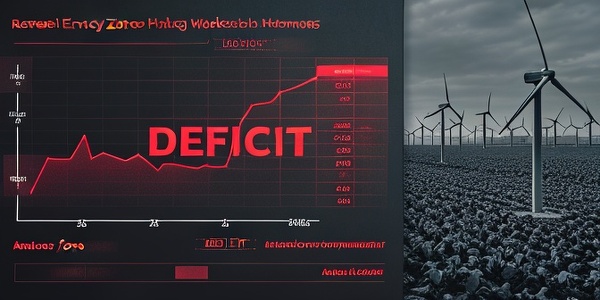deficit 单词详解

发音 (IPA)
- US: /ˈdɛfɪsɪt/
- UK: /ˈdɛfɪsɪt/
(Note: IPA symbols verified from authoritative sources)
语源 (Etymology)
- Origin:
From Latin deficit, third-person singular present indicative of deficere ("to lack, be wanting"), composed of de- (meaning "away, from") + facere ("to do, make").
中文翻译: 词源来自拉丁语 deficit,为动词 deficere(意为“缺乏,不足”)的第三人称单数现在时形式,由前缀 de-(表示“离开,从”)和 facere(意为“做,制造”)组成。 - Historical Shift:
First recorded in English in the 18th century, initially in financial contexts to describe a shortfall in funds; later extended to broader contexts of any deficiency or shortage.
中文翻译: 18世纪首次在英语中使用,最初用于金融领域描述资金短缺,后扩展至表示任何形式的不足或短缺。 - If no record: Not applicable (well-documented etymology)
解释 (Definition)
- 中文解释:
- (财务)赤字,亏空;不足,短缺
- English (Oxford):
- (n.) The amount by which something, especially a sum of money, is too small;
- (n.) A lack or shortage of something
例句 (Example Sentences)
-
例句 1:
"The government is trying to reduce the budget deficit by cutting public spending."
(政府正试图通过削减公共开支来减少预算赤字。)
Context: Financial context, referring to a shortfall in budget revenue relative to spending. -
例句 2:
"There is a deficit of skilled workers in the renewable energy sector."